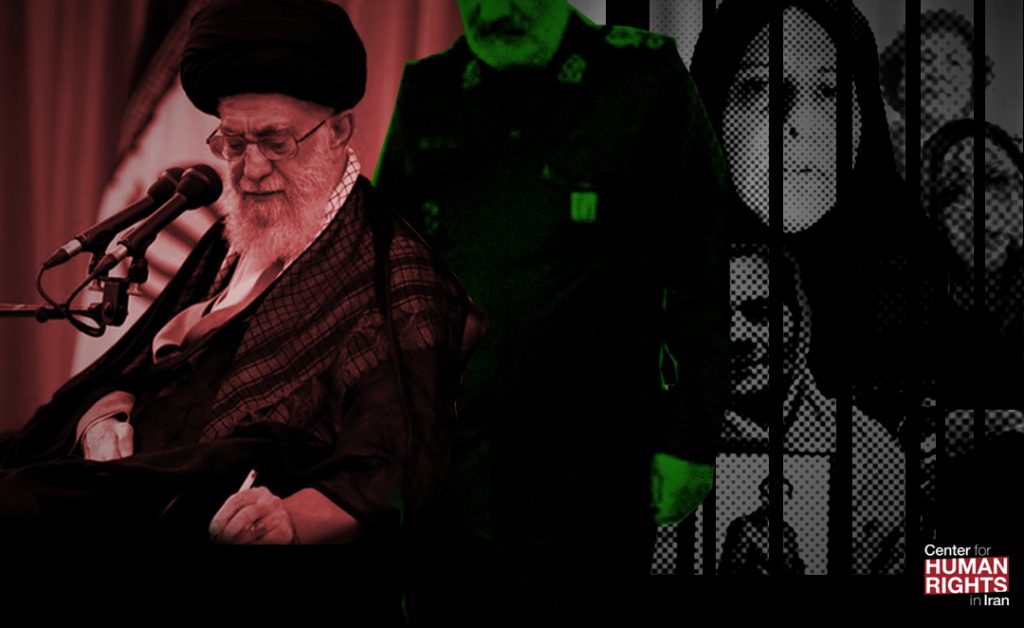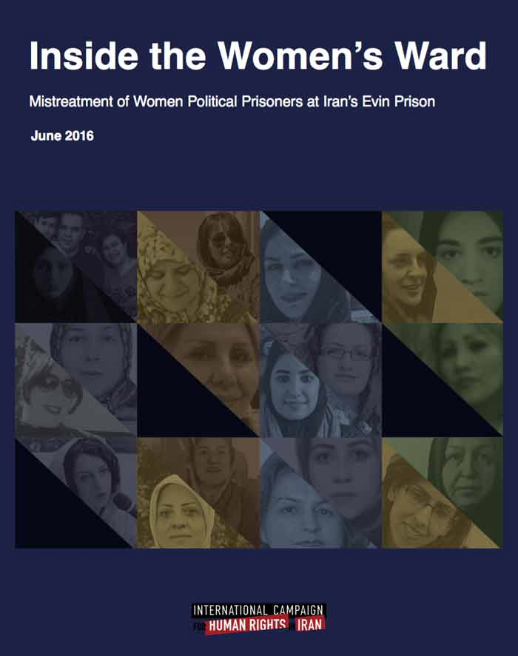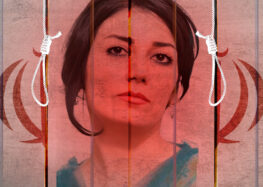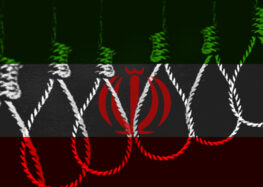14 Women Activists to Be Prosecuted for Demanding Supreme Leader’s Resignation

The prosecution of 14 women who signed a statement demanding the resignation of Iran’s Supreme Leader Ali Khamenei will begin on October 21, 2019, at Branch 26 of the Revolutionary Court.
They have been charged with “propaganda against the state” and “assembly and collusion against national security,” Mohammad Hossein Aghasi, an attorney representing three of the defendants, told the Center for Human Rights in Iran (CHRI).
The defendants are Shahla Entesari (labor women’s rights activist), Nosrat Beheshti (retired teacher and women’s rights activist), Fereshteh Tasvibi (women’s rights activist), Parva Pachideh (author, poet and women’s rights activist), Giti Pourfazel (attorney and central committee member of the secular National Front party), Zahra Jamali (women’s rights activist), Shahla Jahanbin (women’s rights activist), Fatemeh Sepehri (women’s rights activist), Maryam Soleimani (women’s rights activist), Sousan Taherkhani (women’s rights activist), Farangis Mazloom (mother of prisoner of conscience Soheil Arabi), Narges Mansouri (labor and women’s rights activist), Ezzat Javadi Hessar (women’s rights activist), and Kimia Norouzi (women’s rights activist).
Most of the activists are being held in the Women’s Ward of Evin Prison in Tehran. At least one, Fatemeh Sepehri, is in Vakilabad Prison in the city fo Mashhad, her son, Masoud Moin, told CHRI on October 17.
Their statement, published on August 9, 2019, said in part: “We rise against this anti-woman regime that has wiped out our human values and demand a complete passage from the Islamic Republic and drafting of a new Constitution for the establishment of a state in which women’s dignity, identity and equal rights are recognized in all areas.”
The 14 women issued the statement in solidarity with 14 male activists who issued a similar demand on June 11, 2019. The men were also arrested, nine of whom are represented by Aghasi.
“My [male] clients are incarcerated in Vakilabad Prison in Mashhad but I have not been able to study their cases because the authorities have not yet accepted me as their legal counsel,” Aghasi told CHRI.
“All we know is that the charges against them are in connection with the statement as well as their gathering in front of the Appeals Court in Mashhad [to protest a heavy sentence against a fellow activist],” he added.
The statement was signed by Mohammad Nourizad (filmmaker and social media critic), Gohar Eshghi (the mother of Sattar Beheshti, a political blogger who died under torture in police custody), Abbas Vahedian Shahroudi (author and civil rights activist), Kamal Jafari Yazdi (professor of strategic management), Mohammad Mahdavifar (political poet), Hoorieh Farajzadeh (the sister of Shahram Farajzadeh, who was killed during Iran’s 2009 presidential election results protests), Javad La’l Mohammadi (teachers’ rights advocate), Reza Mehregan (civil rights activist), Mohammad Reza Bayat (civil rights activist), Mohammad Hossein Sepehri (teachers’ rights advocate), Hashem Khastar (teachers’ rights advocate), Mohammad Karimbeigi (the father of Mostafa Karimbeigi, a protester killed in 2009), and Zartosht Ahmadi Ragheb (civil rights activist).
“The time has come for the people, thinkers, and caring individuals to lead a national movement by setting aside conciliatory tendencies that have facilitated the destruction of our culture, civilization and national wealth and with all honesty step into the ring and demand fundamental changes to the Constitution and the resignation of the supreme leader who is unjustly extending his authority on a daily basis,” said the statement.

Inside the Women’s Ward: Mistreatment of Women Political Prisoners at Iran’s Evin Prison
Other activists who have issued similar, subsequent statements have since been arrested and are aldo facing prosecution.
According to the Iranian judiciary’s online directory of criminal proceedings, known as SANA, cases against statement signatories Abdolrasoul Mortazavi, Mohammad Hossein Sepehri, Hashem Rajaie, Gholam-Hossein Boroujerdi, Mohammad Nourizad, Reza Jangi, Hashem Khastar, Gholam-Ali Pourgonabadi, and Javad La’l Mohammadi have been submitted to a court in the city of Sorkhroud, in Mazandaran Province.
The activists are facing the charges of “disturbing public peace and order” and “propaganda against the state.”
Masoud Moin, Fatemeh Sepehri’s son, said she was coerced into signing false statements against herself while she was being interrogated.
“We visited our mother in prison, once in a booth and once in person,” Moin told CHRI. “My mother said ‘They wrote a bunch of nonsense and told me I had to sign it and I did because I was under a lot of pressure. But they also wanted to tie me to certain groups like the [banned opposition group in exile] the Mojahedin Khalgh and I told them I have signed whatever you wanted but not this. I absolutely won’t accept it.’”
Moin added: “A month ago, Mr. Khamenei said he’s disappointed by those who do not express criticism and encouraged them to do so. That speech was aired on Iranian television. So, the question is, didn’t my mother and the others express their criticism? Is criticism a crime?”
Khamenei has publicly stated that “no one” is imprisoned in Iran for criticizing him or the government despite scores of citizens being sentenced to lengthy prison terms for engaging in peaceful activism and freedom of speech.
“Some unfair individuals take advantage of free speech and say that there is no freedom in the country, and foreigners repeat this propaganda, while in the country there is freedom of thought, freedom of speech and freedom of choice,” he said during a speech in March 2018.
“Today, no one under the Islamic Republic is pursued or put under pressure for being opposed to the government in their thoughts or views, and there is no intention to do this…But freedom in the Islamic Republic, as in other places in the world, has a framework,” added Khamenei.
Read this article in Persian.






